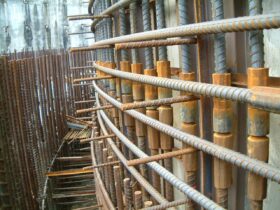Foreign object debris (FOD) control is a critical part of keeping down costs within the aerospace industry. Safety and quality control efforts at airports involve having a strategy to remove dirt and debris from runways quickly. Without preventative methods, the costs can be high to remediate damage caused by foreign object debris.
Damage from FOD
Any debris left on a runway has the potential to inflict damage. Examples of FOD on an airfield include tools, construction materials, rocks, trash, pens, coins, and sand. Any object that doesn’t belong on the runway could lead to significant impairment on an aircraft. FOD also puts airport personnel at risk for injury. Even in cases of minor damage as a result of FOD, the costs can be high. The following scenarios have occurred at an airport due to FOD damage:
- Flight delay times
- Canceled flights
- Passenger cancellations
- Personnel scheduling conflicts
- Overtime payments during FOD remediation
Cost of FOD in the Aerospace Industry
Companies have noted that FOD has cut into profits. According to the aircraft manufacturer Boeing, FOD’s damage costs the aerospace industry an estimated $4 billion annually. FOD damage could cost as much as 20 percent of the total aircraft cost to repair in some cases. For instance, an MD-80 engine has an estimated price tag of $4 million. To overhaul an MD-80 engine malfunctioning because of foreign object debris, the cost is as high as $1 million. Smaller repairs related to FOD are expensive too and increase maintenance costs. As an example, the replacement of each airplane tire will average $1,500 and more.
FOD Control Strategies
Studies have proven that FOD maintenance tools will reduce the number of weekly incidences. The United States Air Force tracked the number of FOD issues reported before and after the use of FOD sweepers. FOD sweepers are quickly and effectively remove objects with the help of a high-powered magnet. The United States Air Force found the FOD sweepers reduced incidences by an average of 75 percent. Instead of an airfield averaging 15 flat tires a week, the sweeper reduced the number to 3 or less.
Although FOD typically relates to aerospace, different industries also benefit from control strategies, including sweepers. Foreign object debris sweepers are also available for applications on race tracks and athletic fields. Using a FOD sweeper in these scenarios can be a cost-effective solution to the race track and stadium owners. Some models can ready over 7 meters wide of track and field space in a single pass. The speed and efficiency of the FOD sweepers reduce manual labor costs for the cleanup of debris items.











Leave a Reply